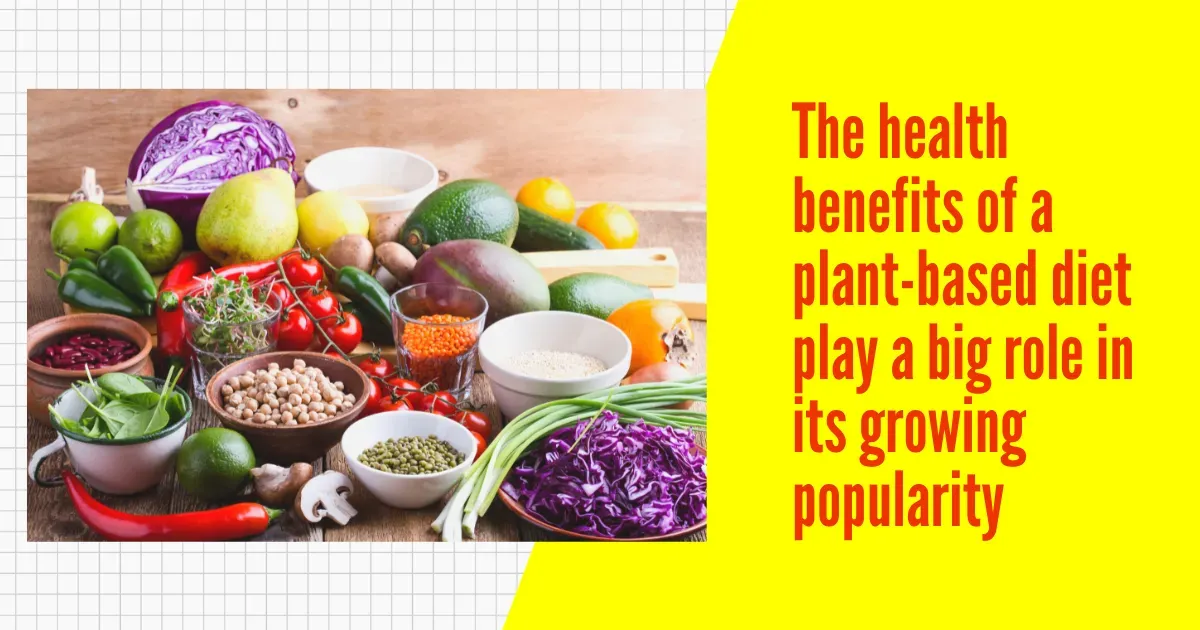The Rising Popularity of Plant-Based Eating in the U.S.
Plant-based food has become very trendy lately. People are now looking for ways to eat healthier and live better. Plant-based eating has become increasingly popular in the United States, with an increasing number of people adopting a plant-based lifestyle for health, environmental, and ethical reasons.
ToC
Start with Small Changes: When transitioning to a plant-based diet, it’s best to begin slowly so that you can maintain it. For instance, try replacing meat with beans or tofu instead of chicken or beef, or swap out dairy products for almond or soy milk.
The U.S. Plant-Based Market in 2024: A Fresh Outlook
Plant-based eating has firmly shifted from a niche trend to a mainstream movement in the United States, propelled by growing awareness around health, environmental sustainability, and ethical considerations. The latest data reflects both enduring interest and evolving consumer behavior.
Market Growth & Performance
According to the Good Food Institute, the U.S. plant-based retail food market reached $8.1 billion in 2024, slightly down from its peak of $8.5 billion in 2022. Although this represents a modest decline, the sector remains a substantial force in the broader food landscape.
Additionally, while overall plant-based product sales slipped by 4%, specific categories—such as protein powders, ready-to-drink beverages, tofu, tempeh, and seitan—continued to grow.
Consumer Penetration & Trends
In 2024, 59% of U.S. households purchased plant-based foods, maintaining the same level as the previous year.
Plant-based meat and seafood—once flagship categories—declined by about 7% in sales, yet the rate of decline is slowing, suggesting stabilization.
Emerging segments show promise: plant-based protein powders, tofu, tempeh, seitan, and sweet baked goods saw double-digit growth in both dollars and unit sales in 2024
Global Perspective
Globally, retail sales of plant-based meat, dairy, and alternatives increased by 5%, reaching $28.6 billion in 2024.
What This Means for the Future
| Insight | Implication |
|---|---|
| Market Value Holds Strong | The $8.1 billion valuation demonstrates enduring consumer interest despite recent setbacks. |
| Category Shifts | Growth is concentrated in convenient and minimally processed products, such as protein powders and tofu. |
| Room for Renewal | Stabilizing declines in meat alternatives and rising demand in other categories suggest an evolving market, not a dying one. |
Updated Stats at a Glance
- 2024 U.S. plant-based food market: $8.1 billion (slight decline from 2022)
- Household penetration: 59% purchased plant-based foods in 2024
- Category performance:
- Meat and seafood alternatives: –7%
- Protein powders, tofu, tempeh, seitan, and baked goods: double-digit growth
- Global plant-based retail sales: $28.6 billion, up 5%
The plant-based sector remains robust, adapting to consumer demands as interest in convenient, protein-rich alternatives rises. Although some traditional categories, such as meat substitutes, have seen declines, renewed innovation and diversification—especially in staple and minimally processed products—point toward a resilient and evolving market.
What Beginners Should Know About Plant-Based Eating
Plant-based eating is a dietary lifestyle that emphasizes consuming whole, minimally processed foods from plant sources, such as fruits, vegetables, legumes, and whole grains. Here are some things that beginners should know about plant-based eating:
Vegan or not?: Plant-based does not necessarily mean vegan: While a vegan diet excludes all animal products, plant-based eating can include small amounts of animal products such as lean meat, fish, eggs, and dairy. It's essential to choose high-quality animal products and focus on (getButton) #icon=(link) #color=(#cf0e0e) #text=(plant-based sources as the primary source of nutrition).
Nutrition: A plant-based diet can be nutritionally adequate. A well-planned plant-based diet can provide all the nutrients for optimal health, including protein, healthy fats, vitamins, and minerals.
However, monitoring nutrient intake and ensuring a balanced and varied diet is essential.
Health Benefits: A plant-based diet can be beneficial for overall health. Studies have shown that they may reduce the risk of chronic diseases, such as heart disease, diabetes, and certain types of cancer. They may also promote healthy weight management and improve overall health and well-being.
Planning: Plant-based eating requires planning. Obtaining all the necessary nutrients from a plant-based diet can be challenging, requiring careful planning and attention to ensure a balanced and varied intake of nutrients. It's essential to incorporate a variety of plant-based foods and consider supplementation as needed.
A boring diet?: Plant-based eating can be enjoyable: Plant-based eating doesn't have to be bland or boring. There are endless possibilities for delicious and satisfying plant-based meals, and experimenting with new ingredients and recipes can be fun and rewarding.
How a Plant-Based Diet Can Boost Your Health
| Health Benefit | Description |
|---|---|
| Lower Blood Pressure | A study published in the journal Hypertension found that individuals following a vegan diet experienced significant reductions in blood pressure compared to those consuming a standard American diet. This can help lower the risk of strokes and heart attacks. |
| Reduce Cholesterol Levels | Research from Harvard University showed that vegetarians typically have lower LDL ("bad") cholesterol levels than meat-eaters, helping to reduce the risk of heart disease. |
| Prevent Heart Disease | Plant-based diets are high in fiber, antioxidants, and phytochemicals that support cardiovascular health. Reduced intake of saturated fats from animal products also contributes to a lower risk of heart disease. |
| Improve Bone Density | Many plant-based foods, such as leafy greens, almonds, sesame seeds, and fortified plant milks, are rich in calcium and magnesium, key minerals for maintaining strong bones and preventing osteoporosis. |
| Help Fight Cancer | A vegetarian diet abundant in fruits, vegetables, whole grains, legumes, nuts, and seeds provides a wide range of antioxidants and fiber that may help protect against several types of cancer, including breast and colorectal cancers. |
| Protect Against Diabetes | According to research published in the Journal of Nutrition, adults who follow a plant-based diet have a significantly reduced risk of developing type 2 diabetes. This is primarily due to improved insulin sensitivity and better blood sugar control resulting from the consumption of fiber-rich plant foods. |




.jpg)
